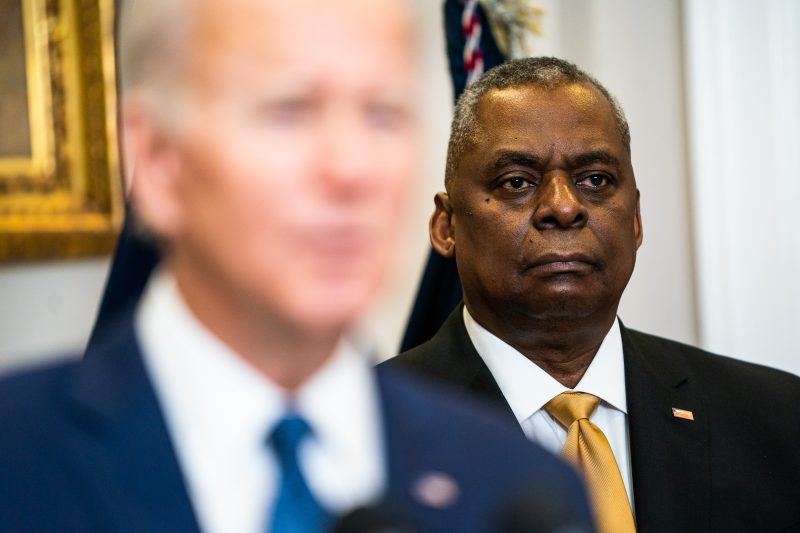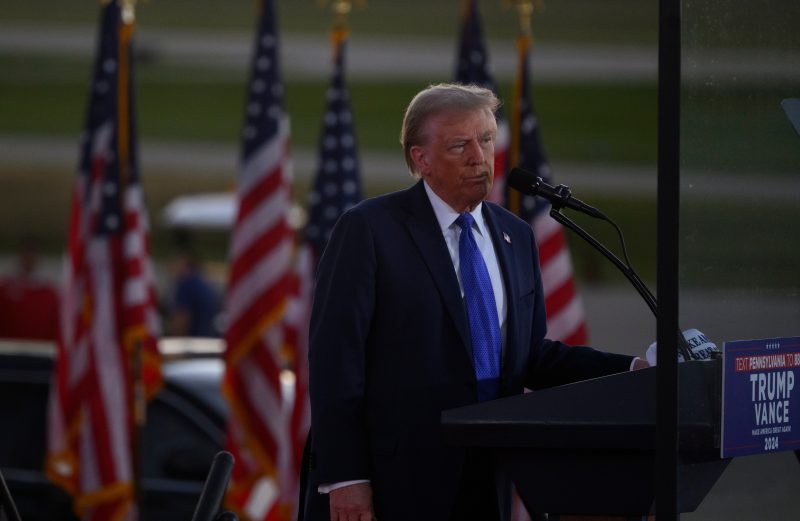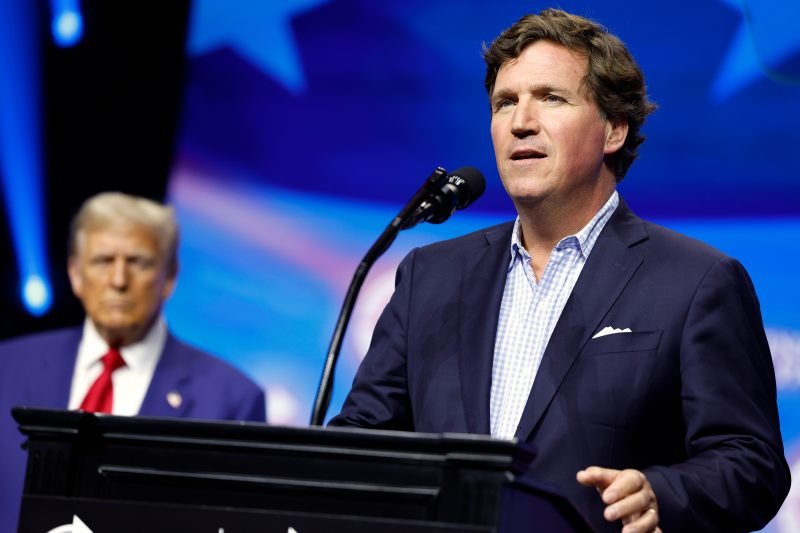Biden retains confidence in Austin despite hospitalization secrecy

President Biden retains confidence in Defense Secretary Lloyd Austin, officials said Sunday, despite widespread surprise and consternation following the Pentagon chief’s failure to disclose a prolonged hospitalization to the White House or the public last week.
Officials have scrambled to piece together information about the episode that landed Austin, a former Army general, in intensive care at Walter Reed National Military Medical Center outside Washington on Jan. 1. The hospitalization was not made public until after 5 p.m. on Jan. 5, when a Pentagon spokesman announced that Austin, 70, had required care for a complication resulting from an elective medical procedure.
A Pentagon spokesman, Maj. Gen. Patrick Ryder, said on Sunday that Austin was transported by ambulance to Walter Reed on Jan. 1 after suffering “severe pain” following his procedure on Dec. 22. He was placed in intensive care, and then remained there “in part due to hospital space considerations and privacy,” Ryder said.
The days-long silence, a departure from the disclosure that routinely occurs regarding the whereabouts and health conditions of the president and top Cabinet members, elicited bewilderment and frustration across the Biden administration and among leading members of Congress. Even top officials at the White House, including national security adviser Jake Sullivan, were not informed of Austin’s hospitalization until late afternoon Jan. 4.
Austin, who Pentagon officials said is recovering well, acknowledged the misstep in a statement released Saturday evening, saying he recognized that he “could have done a better job” keeping the public informed. “I commit to doing better,” he said.
While it remained unclear Sunday when Austin would be released from Walter Reed, Ryder said Austin had been monitoring the U.S. military’s global activities and had received updates from his aides since resuming his duties on Friday evening.
A senior official, who like others spoke on the condition of anonymity to discuss the situation, noted what he described as “an exceptionally close relationship” between Austin and Biden, whose son Beau served as military lawyer under Austin when he was a top commander in Iraq.
“There’s a lot of trust there on both sides, and this episode has not diminished that trust one bit,” this person said. “The president is looking forward to the secretary’s continued service.”
A White House official said Biden had “full confidence” in Austin and was looking forward to him being back at the Pentagon.
But numerous questions remained about the incident a week into Austin’s hospitalization. White House officials declined to say what Biden or his top aides, even now, knew about Austin’s current condition or the reason he was hospitalized.
The incident raised troubling questions about management of weighty military decisions at a moment when the United States is grappling with heightened tensions with Iranian-backed proxies in the Middle East. On Jan. 4, with Austin in the hospital, the U.S. military conducted a strike on a militant target in Baghdad. U.S. forces have also tangled in recent days with Houthi militants in the Red Sea.
It occurred on a week when many officials were just returning from holiday leave, potentially adding to the confusion surrounding Austin’s hospitalization. Officials said that Austin, who typically attends an Oval Office security brief once a week when his and the president’s travel schedules allow, had participated on a national security call Jan. 1, the same day he was admitted to Walter Reed.
Biden himself, who had been on vacation in St. Croix, returned to the White House late the following night. Sullivan had joined him for the trip. Biden’s national security adviser informed him on Jan. 4, after being notified by the Pentagon, that Austin had been hospitalized, officials said.
Ryder said that the Pentagon had not been able to inform the White House of Austin’s hospitalization earlier because his chief of staff Kelly Magsamen, who ultimately made the notification, had been ill. Asked why someone else did not make the notification, Ryder said he had no information to provide.
While multiple officials expressed frustration that Austin had not been more forthcoming about his absence — one said the handling of the incident showed “unbelievably bad judgment” on Austin’s part — they attributed it chiefly to Austin’s intensely private nature and perhaps a misunderstanding of the need for disclosure his position demands.
“You want a defense chief who’s discreet, who’s not going to jam the president,” another senior official said. “But in rare cases like this one, where more transparency was warranted, it served him poorly.”
If Biden himself was frustrated or concerned, he took little noticeable action as a result. On the evening of Jan. 6, after news of Austin’s condition was made public and consternation spread around the capital, Biden spoke by phone with Austin in what officials described as a warm conversation and the president wished him well in his recovery.
Biden has also long felt a sense of loyalty to Austin. After Austin’s return from Iraq, where he attended Catholic Mass with Beau Biden, he and the younger Biden stayed in touch.
While policy differences have put Biden’s Cabinet members on different sides of major issues — over the Afghanistan withdrawal or around the influx of people entering the country illegally, for example — Biden’s administration has had few personnel scandals.
Almost every seat in his Cabinet is filled by the same person he picked more than three years ago, with loyalty going both ways. The decisions by Austin, though, have placed him under further scrutiny.
The Pentagon’s handling of the episode drew immediate criticism from Republicans including Sen. Roger Wicker (R-Miss.), the top Republican on the Senate Armed Services Committee, who said it illustrated the administration’s contempt for Congress.
By Sunday criticism had emerged from at least one prominent Democrat in the House Armed Services Committee, Rep. Adam Smith (D-Wash.), who expressed his concerns in a joint statement with committee chair Rep. Mike D. Rogers (R-Ala.).
“Several questions remain unanswered including what the medical procedure and resulting complications were, what the Secretary’s current health status is, how and when the delegation of the Secretary’s responsibilities were made, and the reason for the delay in notification to the President and Congress,” the lawmakers said. They asked for more information.
The extent of the secrecy about Austin’s whereabouts was underscored by the fact that Deputy Defense Secretary Kathleen Hicks, who would typically assume the duties of the Pentagon chief were he to become incapacitated or otherwise unavailable, did not find out about the hospitalization until Jan. 4.
That was despite the fact that Austin granted Hicks, who was vacationing in Puerto Rico, “operational responsibilities that require constant secure communications capabilities” on Jan. 2., officials said. That occurs occasionally, Ryder said, and is “not tied chiefly to health-related matters.”
Hicks, still in the Caribbean, “immediately engaged staff on the drafting of a public statement and congressional outreach” after she was notified the afternoon of Jan. 4, a senior defense official said. She also made plans to return to Washington the next day.
Later on Jan. 4, Hicks learned that Austin “was preparing to resume full communications capability and the associated operational responsibilities on Friday,” the official said. Hicks decided it was better to remain in place, in Puerto Rico, to maintain agile communications in the meantime.
Hicks made some “routine operational and management decisions” for the Defense Department while Austin was hospitalized and was fully authorized to support Biden on military matters, “should the need have arisen,” the senior defense official said. But Hicks was still left unaware of Austin’s predicament for several days.
Hicks returned from her vacation on Jan. 6, another defense official said.
Peter Feaver, an expert on civil-military affairs at Duke University, called the situation a “gift” to Republicans after years of Democratic scrutiny of chaos during the Trump administration. The decision to withhold the information for so long, and such senior levels, is “baffling,” he said.
“The second thing is that the president has a legitimate right to know where his Cabinet officers [are] and how to reach them at all times,” he said.
Austin will likely have to answer questions from lawmakers about the episode, Feaver predicted.
John Hudson in Doha, Qatar, and Ellen Nakashima contributed to this report.



